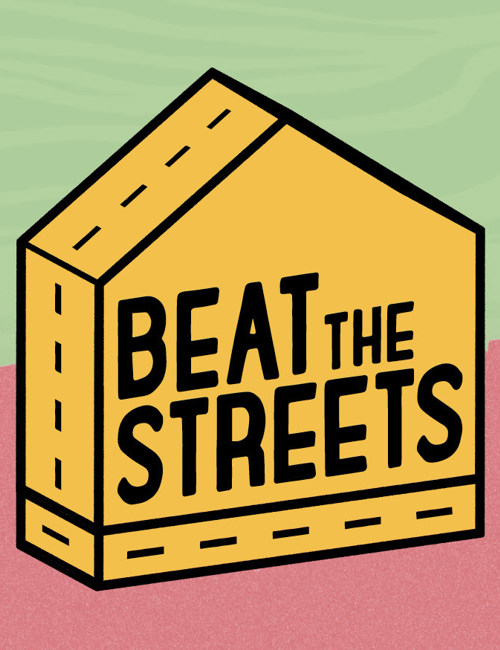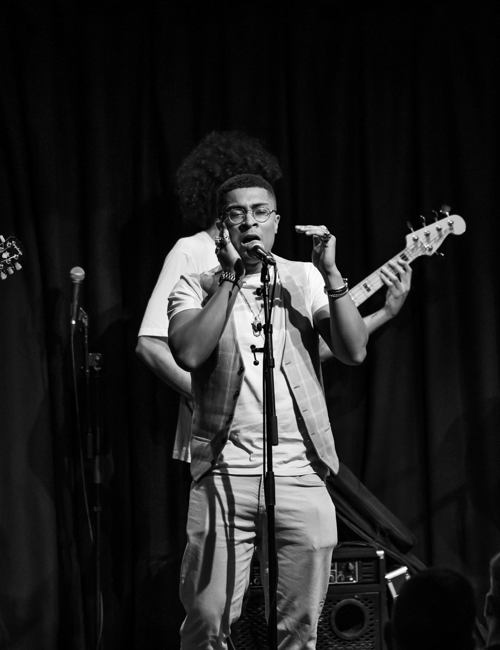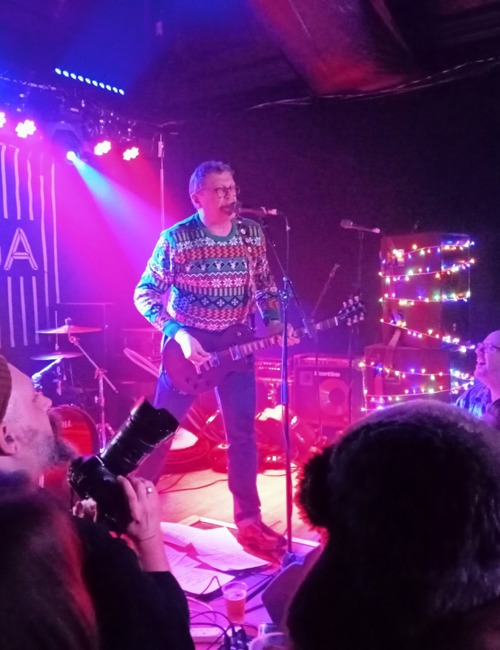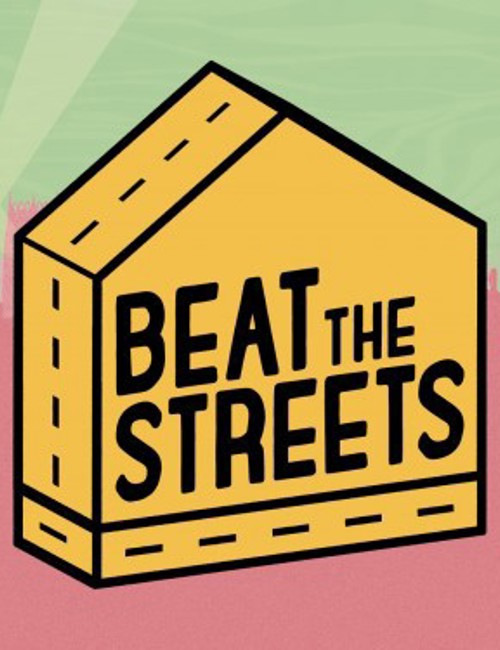"When we came back after we got to No.1, we practically got a civic reception. Before we knew it we put into an open-top limo and driven round the city"

Although Nottingham is probably the most under-performing music city in the country, we've had the odd band who have made it to the toppermost of the poppermost - and the first band to come to mind is Paper Lace. Five years of slog in local pubs ended up with an apparance on Opportunity Knocks, a UK No.1 debut record, a US No.1 follow-up and a final hurrah with Forest on Top Of The Pops with We've Got The Whole World In Our Hands. We hooked up with lead singer Phillip Wright in Brownes...
What was the music scene in Nottingham like when Paper Lace started up?
Pretty good, actually, because every pub in town was a venue. The music licence situation was a lot more flexible than it is today, and all you had to do was chat a landlord up and he’d let you perform. Most pubs in those days had a piano in the corner and were happy to let you perform. There were also a lot of theatre bars, The Heart of the Midlands, Joanna’s up Talbot Street and we were working every night we could. You could actually make a living as a professional musician in Nottingham at the time without a record deal, and there were plenty of gigs out of town too. I was working professionally for 5 years before the fame bit happened.
So what part of Nottingham were you and the rest of Paper Lace from?
I grew up round Elm Avenue, on the fringes of St Anns. I started with a band from school, but then I answered an advert in the Evening Post for a Ripley band called Music Box, who evolved into Paper Lace.
So you mean most of Paper Lace aren’t even from Nottingham?
At first. There were a few line-up changes over time, and eventually the balance was tipped towards Nottingham members by the time we did Opportunity Knocks.
Tell our younger readers what was so important about Opportunity Knocks…
It was pretty much the 70s version of The X-Factor. There was a huge audition week in 1970 at the Bridgford Hotel, which is now the Rushcliffe Borough Council building near the City Ground. And there were thousands of people queuing up. We turned up in our best suits, did a few numbers, and were told that they liked us but not to expect to go on straight away. When they finally got back to us in 1973, we thought; do we really need this now? But they were getting viewing figures of 7 million, so we went for it. And we won five weeks on the trot!
And then came the record deal…
There were two songwriters (Mitch Murray and Peter Callan) who got in touch with our management and offered us Billy, Don’t Be A Hero, with the possibility of more songs if it took off. We went down, recorded it, and they said “Hey, this a great song, it’s gonna be a hit”. And the song proved to be stronger than the band, because everyone knows it, they just can’t remember who recorded it. Except in Nottingham, of course…
How did you deal with so much success – unknowns in January, No.1 in May – so quickly?
It was a bit difficult. I think it told on other members more than it did on me. Nobody was in the band to make it, it was just one of those things that happened, and you don’t think about the ramifications of having a hit until you get one. And obviously it meant more then than it does now, because the number of singles sold then were phenomenal.
And how were you treated in Notts?
When we came back on the train from London after we got to No.1, we practically got a civic reception. All the local media were at the station, and before we knew it we put into an open-top limo and driven round the city. It was like Forest winning the Cup! People were out on the streets! In the end, we presented our silver disc to the city of Nottingham don’t know where it is now…
But having said that, when we actually played gigs in town, we didn’t get much of a reception. It’s a bit of an East Midlands thing, that – it was like when Forest were winning everything in sight, and some of the gates were a bit poor. I remember Cloughie saying there was quite a bit of apathy in town when local people were successful, and he had a point.
It didn’t help that there wasn’t a major venue in town at the time, either…
Funnily enough, the chap who presented us on Opportunity Knocks was Len Maynard, who became leader of the City Council, who we all knew quite well. And it was when we couldn’t find a proper place to play in Notts that he got the idea for the Concert Hall, which was the first venue in ages that was big enough for the top bands.
It must have been dead easy to pull in town, though…
Oh yes! We had to ring up clubs in advance and let them know we were coming. The recognition was frightening at first, but things are different now. You’d get asked for your autograph in Sainsbury’s and recognised in town, but people were much cooler about celebrities then. It was a nice situation. It never got out of hand.
More importantly, who did your utterly stylin’ Perm?
The bloke off the telly…what’s his name? Nicky Clarke! We used to visit London a lot, and he was the only one I trusted it with. I never had it done in Nottingham. It was too important to me!
Tell us about the follow-up, The Night Chicago Died…
Well, that was even more successful. No.1 in America. I got a platinum disc for that…and I certainly didn’t give that away! I remember us being on Top Of The Pops and Elton John shaking my hand backstage and congratulating us on a US No.1, which he hadn’t achieved at the time! The really strange thing was we couldn’t even perform the song in America, due to some contractual hassles. And the label told us that they could make it a hit without us having to be there. We did a few radio stations, but that’s all.
And then, after the fame cooled off, you hooked up with Forest…
We knew Cloughie as soon as he came to town, as we were under the same management. And it was put to us that if we could come up with a good song idea, we could do something with Forest. And in 1978, we went up on a coach to Birmingham with the Forest team – and what a team it was – all done up in their blazers. We had a few beers and did the song. Not many of them could sing, but we found four decent ones and triple-tracked ‘em. And Cloughie bought us fish and chips on the way back, bless him. We did TOTP, Jim’ll Fix It…it was great promotion for the city.
What happened to Paper Lace in the end?
By the latter half of the 70s, I’d just had enough. I always wanted to quit at the top, and I didn’t want to do the full circle. There was a major split in the band – Cliff (the bassist) and myself carried on as Paper Lace with a guy from the New Seekers and a chap called Jamie Moses, who now plays with Brian May and Paul Young and is one of the country’s greatest session musicians. Mick still manages, produces and engineers in a studio in Forest Road. Cliff runs a shop in Derbyshire. And I became a builder. And then eight years ago, I joined the reformed Sons and Lovers.
So why is Nottingham the most under-productive music city in the country?
Well, it’s not through want of trying! I’ve heard that there’s some hellish talent round here, so I don’t really know. All I do know is that when we were starting up, there were almost as many entrepreneurs – managers, promoters etc – as there were bands. Too many, in fact, and a lot of them were rip-off merchants. Nowadays, it’s the other way round; bands tend to try and do everything themselves, and they’re putting themselves out there as a very small fish in an unbelievably large pond. The band can’t do it all, and they’ve got to concentrate on what they do best. It’s not enough these days to say that the music’s great and that will get you through – you need the exposure, and someone to get it for you.
And is there anything you’d like to say to the new generation of Nottingham musos?
Yeah, I don’t envy them at all. I’m glad I was a working musician then, and not now. There are only so many chords out there, and there’s been a lot of repeats! I know that sounds cheesy coming from me, because at the end of the day, who the bloody hell am I? But we worked in the same era as legends like Clapton, Elton John, and some of the people who made music what it is today, trying to make songs that the public liked. And sometimes pulling it off.
We have a favour to ask
LeftLion is Nottingham’s meeting point for information about what’s going on in our city, from the established organisations to the grassroots. We want to keep what we do free to all to access, but increasingly we are relying on revenue from our readers to continue. Can you spare a few quid each month to support us?




